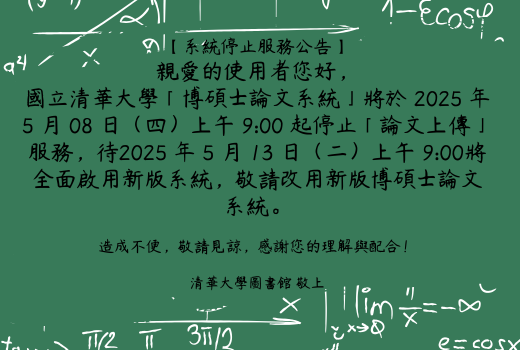|
參考文獻
壹、中文部分
丁一顧(2011)。教師專業學習社群與教師集體效能感關係模式驗證之研究。屏 東教育大學學報,37,1-26。
丁一顧(2013)。校長轉型領導與教師專業學習社群關係之研究。屏東教育大學 學報,41,71-100。
丁一顧(2014)。教師專業學習社群之調查研究:「關注學生學習成效」為焦 點。課程與教學季刊,17(1),209-232。
丁一顧、陳佳琳(2019)。善用教師專業學習社群提升教師專業資本。臺灣教育 評論月刊,8(3),1-8。
王曉玲(2017)。展現校長領導專業能力提升教師專業學習社群發展。臺灣教 育,708,32-34。
江嘉杰(2014a)。偏鄉小學教師專業學習社群組成、運作及影響之探究。學校行 政雙月刊,89,142-163。
江嘉杰(2014b)。臺灣地區教師專業學習社群學位論文之分析。學校行政雙月 刊,91,159-180。
李安明(1997)。我國國小校長教學領導之研究。行政院國家科學委員會專題研 究計畫成果報告(NSC86-2413-H-134-006)。新竹市:國立新竹師範學院初等 教育學系。
李安明(1999)。「為教學而行政」的校長教學領導:理論與實務。教育政策論 壇,2(2),158-203。
李安明(2016)。國民小學校長教學領導運作之責任探究:以新竹縣市3所國小 為例。教育行政論壇,8(1),1-33。
吳倏銘(2013)。國民中學校長正向領導、學校組織氣氛與教師教學效能關係之 研究(未出版碩士論文)。國立新竹教育大學,新竹。
吳靜如(2015)。以教師專業學習社群促進融合教育發展。臺灣教育評論月刊, 4(1),186-190。
吳昌期、何基誠、李敦仁、蔡澍勳、黃文英、蕭美智、張維文(2017)。校長如 何營造教師專業學習社群。國家教育研究院教育脈動電子期刊,10,1-5。
沈龍安(2015)。運用領導作為達成幼兒園評鑑工作。學校行政雙月刊,96,54- 69。
林明地(2002)。校長教學領導實際:一所國小的參與觀察。教育研究集刊, 44(1),143-171。
林新發(2010)。校長教學領導的意涵與行動實踐步驟。國民教育,51(2),1- 6。
林新發、黃秋鑾(2014)。推動校長教學領導以提升教師專業學習社群之策略。 臺灣教育評論月刊,3(1),43-62。
紀家雄(2013)。中小學校長推動學習共同體的教學領導核心技術之探討。學校 行政,85,156-172。
徐佳瑀(2018)。論校長正向領導對教師教學效能之影響。臺灣教育評論月刊, 7(12),47-51。
陳木金(1997)。國民小學教師教學效能評鑑量表編製之研究。藝術學報,61, 221-251。
陳木金(2006)。從班級經營策略對教學效能影響看師資培育的實務取向。教育 研究與發展期刊,2(1),33-62。
陳柏霖(2015)。教師知識管理與教學效能關係之後設分析。師資培育與教師專 業發展期刊,8(3),103-130。
陳木金、吳堂鐘、吳慧蘭(2016)。學校學習環境指標建構對校長推動教學領導 的啟示。學校行政,104,15-38。
陳棟樑、黃明一、周瓊瑤(2017)。臺中市教師專業學習社群與教師專業發展之 研究。管理資訊計算,6,34-43。
陳翠(2017)。幼兒園開展教師專業學習社群的困境及因應策略。臺灣教育評論 月刊,12(6),106-108。
郭小蘋、吳勁甫(2011a)。臺灣校長教學領導研究之分析與展望-以學位論文為 例。學校行政,73,63-82。
郭小蘋、吳勁甫(2011b)。台灣地區近年來校長教學領導與教師教學效能學位論 文研究走向之分析。嘉大教育研究學刊,27,1-27。
郭添財、連久慧(2014)。校長教學領導的理念、策略與作法-紅瓦厝國小為 例。臺灣教育,689,44-49。
連倖誼、張雅筑(2017)。教師專業學習社群信念與教學效能之研究。師資培育 與教師專業發展期刊,10(1),75-104。
許玉齡(2001)。幼教品質繫於幼兒園園長。國教世紀,196,41-46。
許秀萍(2010)。一所幼稚園老師教師學習社群的實踐:園長的角色。新竹教育 大學教育學報,27(2),135-168。
張德銳、張素偵(2012)。臺北市中小學校長轉型領導、教師領導與教學效能之 研究。北市教育學刊,41,59-97。
張媛甯、張書鳳(2016)。臺南市國民中學教師參與教師專業學習社群與教師 專業發展評鑑態度關係之研究。學校行政,102,175-200。
教育部(2009)。中小學教師專業社群手冊(再版)。臺北市:教育部。
教育部(2014)。十二年國民基本教育課程綱要。取自https://reurl.cc/Y1RlGl
教育部國民及學前教育署(2018)。107學年-111學年幼兒園基礎評鑑。取自 https://reurl.cc/xZ4DeV
黃靖文、張韶蘭、陳怡君(2019)。教師專業學習社群對校長知識領導 與組織 效能關係之中介效果研究。高雄師大學報,46,17-38。
萬家春(2016)。借鏡Dewey的學習社群理想,推動教師專業學習社群。國教新 知,63(3),11-23。
溫子欣、秦夢群、陳木金(2015)。校長教學領導個案研究。教育科學期刊, 14(1),123-146。
楊振昇(1999)。我國國小校長從事教學領導概況、困境及其因應策略之分析研究。 暨大學報,3(1),183-236。
楊振昇(2002)。析論「教學領導」之內涵與前瞻。課程與教學,5(2),37- 54。
楊振昇(2003)。教學領導與教師專業發展。教育資料集刊,28,287-318。
楊靜宜(2009)。學前教育機構園/所長教學領導與教師教學效能之研究(未出 版碩士論文)。國立新竹教育大學,新竹。
鄭進丁(1986)。國民小學校長角色之分析。高雄:復文。
劉明德(2005)。中小學校長教學領導 核心技術關鍵之探討。學校行政雙月 刊,38,65-75。
劉鎮寧(2016)。國民小學校長教學領導與教師專業發展之個案研究。慈濟大學 教育研究學刊,13,61-89。
劉倚禔、吳勁甫(2017)。教師專業學習社群與教師教學效能關係之後設分析。 教育科學期刊,16(1),157-169。
蔡銘津、楊淑娟(2012)。國幼稚園教師不同在職進修參與、進修動機與教學效 能關係之研究。人文社會電子學報,8(1),129-156。
謝傳崇(譯)、林新發校閱(2010)。校長教學領導:理論與應用(原作者: Militello, M., Rallis, S. F., & Goldring, E. B.)。臺北市:心理。
謝豐宇,賴志峰(2012)。國民中學校長服務領導、教師組織公民行為與教師教 學效能關係之研究。學校行政,82,47-69。
謝傳崇、許欉龍(2015)。國民中小學校長領導之後設分析-以博士論文為例。 教育研究學報,49(2),41-64。
謝傳崇、李孟雪(2017)。國民小學校長翻轉領導、教師專業學習社群與教師教 學創新關係之研究。教育政策論壇,20(2),151-184。
謝傳崇、王妍蘇(2019)。幼兒園園長/園主任課程領導、教師專業學習社群與 教師教學創新關係之研究。學校行政雙月刊,122,82-105。
謝惠如、龔心怡(2018)。教師教學效能與學生數學學習困擾關係之研究。高等 教育研究紀要,8,89-114。
鍾昀珊、戰寶華(2015)。屏東縣偏遠地區國小教師專業學習社群、組織承諾與 教學效能之研究。師資培育與教師專業發展期刊,8(2),69-98。
鍾榮進(2015)。國小教師教學效能自評之研究。師資培育與教師專業發展期 刊,8(1),69-104。
顏國樑(2016)。以教師專業學習社群帶動教師專業成長的浪潮。師友月刊, 588,14-18。
魏美惠、羅巧玲(2012)。淺談教師創造力與創造性人格特質對教學效能的影響 ─以幼兒教育為例。資優教育季刊,122,17-23。
魏宗明、劉乙儀、張瑞村(2014)。中彰投地區國民小學附設幼兒園教師領導與 教師專業發展關係之研究。幼兒教保研究期刊,13,1-26。
簡楚瑛(1998)。淺談附幼校(園)長在幼稚園教學歷程中的領導角色。國教世 紀,179,6-10。
羅楚佩(2017)。課程與教學領導者的思維與作為。師友月刊,606,59-62。
羅巧玲、魏美惠(2013)。中部區幼兒教師創造力人格特質與教師教學效能之相關 研究。教育科學期刊,12(1),149-178。
龔信傑、曾柏瑋與吳百祿(2019)。高雄市幼兒園園長服務領導與教師組織承諾 關係之研究。正修通識教育學報,16,165-200。
貳、英文部分
Akram, M. (2019). Relationship between students' perceptions of teacher effectiveness and student achievement at secondary school level. Bulletin of Education and Research, 41(2), 93-108.
Ashton, P. T., Webb, R. B., & Doda, N. (1983). A study of teachers' sense of efficacy. Retrieved from ERIC database. (ED231834)
Bandura, A. (1977). Self-efficacy: Toward a unifying theory of behavioral change. Psychological Review, 84, 191-215.
Bandura, A. (1994). Self-efficacy. In V. S. Ramachaudran (Ed.), Encyclopedia of human behavior (Vol. 4, pp. 71-81). New York: Academic Press.
Bush, T. (2019). Professional learning communities and instructional leadership: A collaborative approach to leading learning? Educational Management Administration & Leadership, 47(6), 839–842.
Blase, J., & Blase, J. (1999). Principals’ instructional leadership and teacher development: Teachers’ perspectives. Educational Administration Quarterly, 35 (3), 349-378.
Blase, J., & Blase, J. (2000). Effective instructional leadership: Teachers perspectives on how principals promote teaching and learning in school. Journal of Educational Administration, 38(2), 130-141.
Brooks, J. G. & Brooks, M. G. (1993). In search of understanding: The case for constructivist classrooms. Alexandria, VA: ASCD.
Calik, T., Sezgin, F., Kavgaci, H., & Kilinc, A. C. (2012). Examination of relationships between instructional leadership of principles and self-efficacy of teachers and c ollective teacher efficacy. Kuram Ve Uygulamada Egitim Bilmleri, 12(4), 2498- 2504.
De Bevoise, W. (1984). Synthesis of research on the principal as instructional leader. Educational Leadership, 41(5), 14-20.
DuFour, R., DuFour, R. B., & Eaker, R. (2008). Revisiting professional learning communities at work: New insights for improving schools. Bloomington, IN: Solution Tree.
Graham, P. (2007). Improving teacher effectiveness through structured collaboration: A case study of a professional learning community. RMLE Online: Research in Middle Level Education, 31(1), 1-17.
Hallinger, P. (1992). The ecolving role of American principals: From managerial to instructional leaders. Journal of Educational Admonisrtation, 30(3), 35-48.
Hord, S. M. (1997). Professional learning communities: Communities of continuous inquiry and improvement. Retrieved from http://www.sedl.org/pubs/catalog/items/cha34.html
Hoy, A. W. (2004). Self-efficacy in college teaching. Essays on Teaching Excellence, 15(7).
Hord, S. M. (2009). Professional Learning Communities. National Staff Developement Council, 30(1), 40-43.
Hallinger, P., & Murphy, J. F. (1987). Assessingand developing principal instructional leadership. Euducational Leadership, 45(1), 54-61.
Jamil, M. F. & Mohd-Hamzah, M. I. (2019). The effects of distributed leadership on teachers’ collective efficacy and professional learn community. International Journal of Educational Best Practices, 3(2), 10-27.
Luyten, H. & Bazo, M. (2018). Transformational leadership, professional learning communities, teacher learning and learner centred teaching practices; Evidence on their interrelations in Mozambican primary education. Studies in Educational Evaluation, 60, 14-31.
Murphy, J. (1990). Principal instructional leadership. In P. W. Thurston & L. S. Lotto (Eds.), Advances in educational administration: Changing perspectives on he school (pp. 163-200). Greenwich, CT: JAI Press.
Money, S. M. (1992). What is teaching effectiveness ? A survey of student and teacher perceptions of teacher effectiveness. Retrieved from ERIC database. (ED351056)
Prenger, R., Poortman, C. L., & Handelzalts, A. (2019). The effects of networked professional learning communities. Journal of Teacher Education, 70(5), 441-452.
Ross, J.A. (1994). Beliefs that make a difference: The origins and impacts of teacher efficacy. Retrieved from ERIC database. (ED379216)
Ross, J. A. (1998). Antecedents and consequences of teacher efficacy. In J. Brophy (Ed.), Advances in research on teaching (Vol. 7, pp. 49-74). Greenwich, CT: JAI Press.
Robinson, V. M. J., Lloyd, C., & Rowe, K. (2008). The impact of leadership on student outcomes: An analysis of the differential effects of leadership types. Educational Administration Quarterly, 44(5), 635-674.
Ramazan, C. & Hanifi, P. (2018). Examining the relationship between school principals’ instructional leadership behaviors, teacher self-efficacy, and collective teacher efficacy. The International Journal of Educational Management, 32(4), 550-567.
Senge, P. M. (1990). The fifth discipline: The art and practice of the learning organization. New York, NY: Doubleday Currency.
Sheppard, L. B. (1993). A study of the relationship among instructional leadership behaviors of the school princia1 and selected school-level characteristics. University of Ottawa, Canada.
Tschannen-Moran, M., Hoy, A. W., & Hoy, W. K. (1998). Teacher efficacy: Its meaning and measure. Review of Educational Research, 68(2), 202-248.
Vescio, V., Ross, D., & Adams, A. (2008). A review of research on the impact of professional learning communities on teaching practice and student learning. Teaching and Teacher Education, 24(1), 80-91.
Voelkel, R. H., & Chrispeels, J. H. (2017). Within-school differences in professional learning community effectiveness: Implications for leadership. Journal of School Leadership, 27(3), 424-453.
Yin, H., & Zheng, X. (2018). Facilitating professional learning communities in China: Do leadership practices and faculty trust matter? Teaching and Teacher Education, 76, 140-150. |
